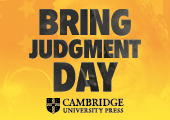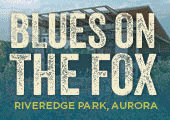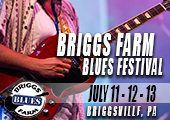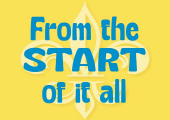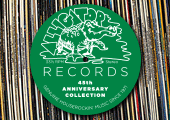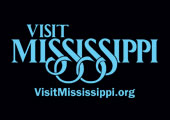SONNY GREEN
 Found! One Soul Singer
Found! One Soul Singer
Little Village Foundation – LVF 1037
Although he’s being touted as a soul “discovery,” vocalist Sonny Green hasn’t spent his life languishing in total obscurity. Born in Louisiana in 1942, he’s been a professional entertainer since the 1950s; he recorded at least 12 singles in the 1960s and ’70s on such labels as Whip, Fuller, Hill, and UA; many are prized by collectors today. In 1973, his Don’t Write a Check with Your Mouth made it to No. 89 on the national Billboard R&B charts.
This is Green’s first full-length album under his own name. He declares his old-school cred immediately with an evocative reading of I’m So Tired, originally a hit for Bobby Bland in 1972; in fact, he hews so closely to Bland’s sound here that some listeners may consider this, as well as Green’s take on Blind Man, closer to an imitation than a tribute. His take on If Walls Could Talk, likewise, powerfully evokes Little Milton, and on Be Ever Wonderful he strains his chops to their limit to approximate Ted Taylor’s legendary high-tenor warble.
Green seems to have an easier time finding his own voice on material not closely associated with other soul men. Outings such as Cupid Must Be Stupid (recorded in 2007 by saxophonist/vocalist Terry Hanck, who weighs in here with a brawny sax solo), I Beg Your Pardon (written by harpist Rick Estrin and originally recorded by Little Charlie and the Nightcats), and I Got There (featuring another incendiary sax break, this one by Gordon Beadle) find him incorporating the influences of Bland and Milton into a personalized, emotionally fervid but effortlessly realized sound. His take on Willie Nelson’s honky-tonk classic Are You Sure sounds appropriately beer-sodden and bereft. The Bobby Rush–like If You Want Me to Keep on Loving You is a reprise of one of Green’s own earlier outings (from 1971), and he rides the chunky-funk beat with effortless elan.
Special kudos should be extended to producer Kid Andersen (who also handles lead guitar duties)—the sound is roomy, horn charts richly textured and muscular, and all solos dig deeply into the meat while avoiding pyrotechnic excess. Even if at times he hews a little too closely to the styles and sounds of some of his mentors and role models, Sonny Green stands on his own as a gifted deep soul craftsman.
—David Whiteis
STEVE WASHINGTON
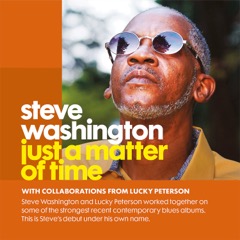 Just a Matter of Time
Just a Matter of Time
JSP – JSP3019
For critics and casual listeners alike, there is special satisfaction in discovering a good album by a previously unrecorded artist. Such is the case with this debut by Steve Washington—an experienced songwriter, arranger, and producer best known (by those who read liner notes) for his numerous behind-the-scenes collaborations with the late Lucky Peterson. The son of the prolific blues and R&B tunesmith Ferdinand “Fats” Washington (who wrote classic songs made famous by the likes of B.B. King, Lowell Fulson, Johnny Ace, and others), the younger Washington is a longtime resident of Dallas, Texas. As he explains in the self-penned notes, that’s where he met Peterson in 1998 and first became his road manager. Over the years the two became close personal friends, and Washington rapidly evolved into the blues star’s chief songwriter and frequent studio collaborator, particularly on productions for JSP Records. With Peterson’s passing in May 2020, Washington now steps into the spotlight—as singer, percussionist, and keyboardist as well as primary lyricist and composer—with an impressive album under his own name. Smoothly fusing elements of blues, soul, and funk, it also features some of Peterson’s final studio contributions.
The set comprises 12 original songs that Washington wrote or co-wrote. The opener, Send Me, rides a gently driving rhythm that highlights Washington’s reedy and melodic vocalizing along with his effective use of the snare drum as (almost) a lead instrument. Though not to be mistaken for Sam Cooke’s golden oldie You Send Me, this number does recall the best of classic R&B. So do several other titles, including the gospel-tinged When I See You Again, as well as the exquisite Starting Over Again, which surprisingly incorporates delicately plucked mandolin into the sonic textures of its closing passage. Of special note, Peterson contributes lead vocals and a stellar acoustic guitar solo on the southern soul ditty Love of Mine.
However, Washington provides some counterbalance to the soulful serenading by also interpreting some harder-edged blues, including his beat-heavy and funky title track. Another standout in this vein is Blues Don’t Cost a Thing, on which Peterson again sings, this time over an ominously chugging bass line. Speaking of Peterson, there’s also one simple but solid instrumental titled Lucky’s Blues Thought, on which he improvises an extended solo on keyboards, accompanied only by bass and drums.
Yet despite the various and compelling embellishments offered by Peterson as guest star, it is ultimately Washington’s album and a worthy introduction to the wider range of his talents. Whether inevitable (as the title suggests) or not, Just a Matter of Time proves that this already established songwriter and producer is a multifaceted and highly skilled recording artist in his own right.
—Roger Wood
LUTHER “GUITAR JUNIOR” JOHNSON
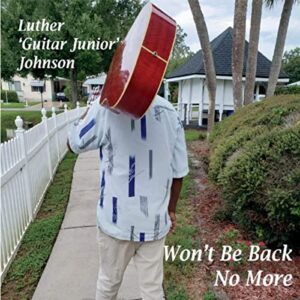 Won’t Be Back No More
Won’t Be Back No More
Crossroads Blues Media – CBM-1
It’s been a while since we’ve heard from Luther “Guitar Jr.” Johnson, the veteran fretman who became internationally famous after joining Muddy Waters’ band in 1972. (By that time, of course, Johnson was already a seasoned pro, having led bands around Chicago since the mid-’50s; his resume also included a stint with Magic Sam.) Known primarily as an electric guitarist, Johnson chose to return to his Mississippi roots (stylistically, at least) for this all-acoustic outing, recorded in one take at Johnson’s home in Wildwood, Florida.
The informal intimacy of the setting makes itself felt immediately; we hear Johnson running through a few preliminary warm-up runs, and we occasionally catch playful spoken interplay between Johnson and Diane Thomas (credited as a “backup singer” but sounding more like an enthusiastic companion/friend who contributed where and when she felt like it).
The set itself combines well-known standards (Hi-Heel Sneakers, Mystery Train, I’m Ready (credited to Muddy instead of Willie Dixon), Mean Old World, et al.) with Johnson originals (at least one of which, Peaches Hangin’ High in Your Tree, is patterned closely on a classic theme—in this case, Worried Life Blues / Someday Baby). Johnson segues from song to song with apparent effortlessness; it’s hard to tell whether he had the set list worked out beforehand or if he was simply singing songs as they came to him, but the overall effect is a pleasing mix of spontaneity and smooth professionalism.
On a purely musical level, things are pretty stripped-down; Johnson strums enthusiastically behind his own singing, interspersing verses with earnestly picked single-string leads. His vocals sound a bit strained on occasion and a few sour notes and miscues occur, although that might be at least partially due to the technical limitations of the setting (no opportunity for overdubs or punch-ins). But then, that’s hardly the point of this set: it’s obviously intended as an affectionate look at a modern-day bluesman in a setting, and purveying a sound, not usually associated with him. On those terms, it succeeds admirably.
—David Whiteis
HARMONICA SHAH AND HOWARD GLAZER
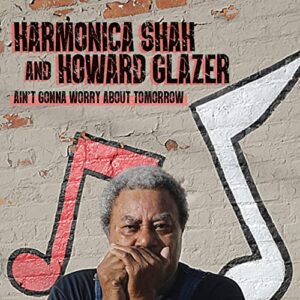 Ain’t Gonna Worry About Tomorrow
Ain’t Gonna Worry About Tomorrow
Electro-Fi – 3460
Ain’t Gonna Worry About Tomorrow is the first studio collaboration between bluesman Harmonica Shah and guitarist Howard Glazer since their 2003 recording Tell It to Your Landlord. Shah’s quirky, self-deprecating humor and uninhibited performance style make him a wholly original voice in today’s blues scene. Glazer’s bare-knuckled guitar work, seasoned with judicious amounts of distortion and feedback, makes him a perfect musical foil for Shah. Together, these two Detroit-based musicians have created an album that’s filled with the grit and scrappy underdog spirit of their adopted hometown.
Opening track Reality Blues (I’m too Old to Be Your Man) wastes no time introducing the listener to Shah’s blunt, cynical humor. Shah’s beautifully unpolished vocals occasionally stray out of meter, but his delivery is perfectly suited to lyrics like, “When I come back down to reality, I think I’m too old to be your man.” Glazer’s tough-toned guitar leads and terse riffs from rhythm guitarist Mike Blaskiewicz flesh out the arrangement while bassist Steve Glazer and drummer Skeeto Valdez keep the proceedings grounded. Shah’s bravado and defiant personality are in full flower on Dirty Bastard Blues. When Shah sings, “I’m a two-faced dirty bastard / Everything I do is no damn good / I go out there late at night / Be stinking dirty like I should,” listeners will laugh and wonder why more blues artists don’t write such direct lyrics.
The music takes a darker turn on the simmering, minor-key workout Pretty Girl, Pretty Girl. While Shah once again meditates on the subjects of aging and attraction to younger women, the ominous mood is reminiscent of Junior Kimbrough. Even when performing a familiar warhorse like Fenton Robinson’s Somebody Loan Me a Dime, Shah and Glazer sound like no one else in the blues world. Shah adds a few improvised verses that drip with his trademark hard-bitten attitude. Glazer’s rough and ready guitar style is a drastic departure from the late Robinson, but he’s a perfect collaborator for Shah.
Listeners who appreciate originality will love Ain’t Gonna Worry About Tomorrow. In these troubled times, Shah and Glazer’s blues is a much-needed dose of soul and resilience.
—Jon Kleinman
ERIN HARPE
 Meet Me in the Middle
Meet Me in the Middle
VizzTone – VTJJ 004
Whatever is going on here is hard to capture in words. It’s genuine, passionate, totally convincing, and outright joyous, a pure listening pleasure, today’s country blues at its very best. Aficionados of the raw, true, and deep acoustic blues can rejoice: Erin Harpe is back and she can sing the tattoos right off your arm.
The acoustic blues is not typically defined as “hot,” an adjective usually reserved for jazz from the early 20th century. Any poor writer destined to review her new CD, Meet Me in the Middle, will have to grapple for descriptive verbiage that does not seem to overly gush accolades, no matter how well-deserved. Words of praise from the usual music critic vocabulary could fit, but none muster it quite perfectly to summarize the album. Old clichés like “lightning in a bottle” or “you’ll need a cold shower” would be too easy. “Hot” does it.
The energetic Boston-based singer-songwriter from Annapolis, Maryland, has played the acoustic blues for her entire life. She got her chops from her virtuoso dad, the roots and blues musician, vintage guitar expert, and Stella guitar guru, Neil Harpe. She learned the blues from childhood on, sitting by the knees of the greats in Archie’s Barbershop, Washington, DC’s epicenter of the Piedmont Blues. She took up alternating bass fingerpicking as a young teenager directly from her dad and from her mentor, Eleanor Ellis. She grew up listening firsthand to John Jackson, Archie Edwards, John Cephas, and Phil Wiggins, all elders who adored her. By now, she is in her absolute prime, one of the finest fingerpicking acoustic blues singers in the land. To find an equivalent, the best comparison would be early Bonnie Raitt, Maria Muldaur, or Eleanor Ellis, if you add a spicy amalgam of Memphis Minnie’s unabashed kickass attitude. There are lots of good guitar players in the acoustic blues and lots of superb singers. Few, if any, can do both as well as Harpe, and even fewer can also write such swinging songs. Like I said, it’s hot!
Her husband, Jim Countryman, recorded this record, which has a cool analog vibe, in their home studio in Jamaica Plain, Massachusetts, during the pandemic lockdown. He joins her on the ukulele bass, fitting in just fine, smoothly enhancing Erin’s virtuosic guitar picking. Erin plays acoustic guitar, kazoo, and foot percussion. The only bad thing about this record, besides the kazoo, is that you only get ten songs and it will surely leave you wanting for ten more. We get four Erin Harpe originals and a set of covers as an homage to the great blues women of the golden era. The earthy Erin Harpe understands her musical heritage as a woman and she sings as passionately and, well, as “hot” as the best of the greats of bygone days, with her rich and smoky voice. She belts out the songs as if to call up the spirts of the blues women of the bygone era.
The sparkling album opens with three Harpe originals, starting with the unabashedly sexually drenched All Night Long. The cold shower metaphor might be useful here after all. Hard Luck Woman showcases both her strong singing and picking. The title cut, Meet Me in the Middle, is a plea for sanity that speaks to our modern-time condition, when all around us there is division, conflict, disagreement, misinformation, and unwillingness to compromise, in politics and even music. Bonnie Raitt will be proud, and perhaps a little jealous, to see the next generation also pick up on Sippie Wallace’s Women Be Wise, a song that Raitt made famous. Harpe shows her slide guitar prowess on the famous Rollin’ and Tumblin’. She covers Geeshie Wiley’s Pick Poor Robin Clean, and Memphis Minnie’s What’s the Matter with the Mill, both songs that are favored and often covered by East Coast Piedmont blues musicians. She added the gospel standard When I Lay My Burden Down as a tribute to her recently deceased stepfather. The album closes with a sensitive, hopeful, and beautiful original, One Fine Day (we’ll be together . . .).
One can play the roots country blues differently, louder or faster, to try to impress and dazzle. But nobody today plays and sings it better.
—Frank Matheis
NORA JEAN WALLACE
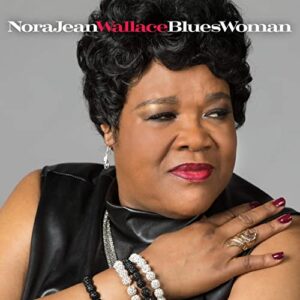 BluesWoman
BluesWoman
Severn Records – CD 0079
Born and raised in Greenwood, Mississippi, Nora Jean Wallace has been steeped in the blues and gospel. Her performing and recording career commenced in the ’70s and includes a tenure in Jimmy Dawkins’ band. After a decade-long hiatus during which she raised a family, she returned to music in 2002. She went on to release a pair of well-received albums as Nora Jean Bruso, 2003’s Sings the Blues and Going Back to Mississippi in 2004. But then she once again set aside her musical endeavors, taking time to care for her ailing mother. Happily, she has returned in late 2020 using her birth name, releasing BluesWoman. It’s quite possibly her most fully realized work to date.
While the BMA-nominated Going Back to Mississippi remains an enjoyable and engaging listen, Wallace’s new release sounds even more like the work of someone who has lived, loved, lost, and endured, and done it all without losing her joie de vivre and a sense of fun. There’s a saucy feel to the album’s opening track, Martell—an ode to fine cognac—that brings to mind jump blues artists like the Treniers and Louis Jordan. And Wallace’s husky, growling vocals on the track—joined by a spirited backing chorus—make it clear that while she might be kidding (a little), she’s best taken seriously.
On a reading of Syl Johnson’s I Can’t Stop, Wallace’s top-flight ensemble—with guitarist Johnny Moeller and keyboardist Stanley Banks within its ranks—lays down a swampy, Creedence Clearwater Revival–flavored groove that propels the song.
George Jackson’s Evidence was first cut by Candi Staton in 1970, but Wallace sets aside the original’s southern soul vibe, imbuing the tune with a blues feeling that matches its lyrical content quite well. The recording underscores Nora Jean Wallace’s skill at bending the work of outside composers to work with her particular set of vocal talents.
Banks wrote four of the songs on BluesWoman (including the title track) expressly for Wallace, but the vocalist demonstrates her own songwriting chops on four cuts as well. A highlight among these is Victim, a languorous blues that breathes life into the “victim of love” lyrical trope; in Wallace’s hands, the idea is visceral and real. Moeller deftly manages the daunting feat of showcasing his chops while making sure never to overshadow the vocalist.
Steve Guyger’s harmonica work is tasteful and exemplary throughout the record, but he steps aside on Rag and Bucket, making way for a guesting Kim Wilson. The Fabulous Thunderbirds front man weaves his blues harp’s soulful melodic lines in between Wallace’s phrasing in an effective call-and-response manner.
Wallace’s original Look Over Yonder and I’ve Been Watching You explore a Chicago blues style, and though the latter employs an extended spoken-word introduction—one of several on BluesWoman—even that well-worn device feels genuine in the context of the record. And the R&B stylings of Dance with Me show that while blues is Wallace’s foundation—and the idiom in which she’s most comfortable—her abilities extend effortlessly beyond the genre.
—Bill Kopp
THE DUKE ROBILLARD BAND
 Blues Bash with Duke Robillard & Friends
Blues Bash with Duke Robillard & Friends
Stony Plain – SPCD 1423
Recorded back in March, just as the initial pandemic lockdowns were commencing around the globe, Blues Bash with Duke Robillard & Friends serves up ten tracks of pure escapist fun. The venerable guitarist/vocalist testifies in the liner notes to his modest but noble ambitions: “My concept for this album was to make a straight vintage style blues album with no frills . . . just the good old blues.” One listen, and it’s clear Robillard and his band succeeded with flying colors.
Blues Bash is a zesty brew of jump blues, early rock ’n’ roll, and classic rhythm and blues sounds, anchored by the pin-tight trio of tenor saxophonist Greg Piccolo, Rich Lataille on alto and tenor horns, and Doug James on baritone sax. Ripping right out of the gate, vocalist Chris Cote bellows with fervor on Ike Turner’s Do You Mean It, Robillard replying with a fierce stab-and-jab solo. Cote also whoops it up on the energetic boogie What Can I Do and the short-and-sweet shuffle You Don’t Know What You’re Doin’. Fellow guest vocalist Michelle “Evil Gal” Willson brings husky naughtiness to the double-entendre Helen Humes favorite You Played on My Piano, complemented by a smooth-swinging James bari solo.
Robillard takes the mic on a few of the album’s straight-ahead blues cuts. The stop-and-start Chicago-style No Time pairs the Duke’s raspy voice with the simpatico wheeze and wail of Mark Hummel’s harmonica, and on Al King’s Everybody Ain’t Your Friend, both Robillard’s vocals and his rawest solo of the album cut cleanly through the horns’ easy-loping rhythm. Robillard’s singing is at its most purely joyous on Ain’t Gonna Do It, the ensemble driven to ecstatic heights by the scintillating stride of pianist Mark “Mr. B.” Braun.
The album also presents a pair of ear-pleasing instrumental tracks. On Rock Alley, Robillard’s crisp phrases give way to a short Piccolo tenor solo that’s only missing a bar top for him to strut down. The Robillard-written album closer, Just Chillin’, brings the vibe down to a cool simmer, with beautifully breathy lines from Piccolo, the mellow midnight groove of Bruce Bears’ Hammond organ, and Robillard’s guitar slipping in a grace-note quote from the pop standard That’s All. Blues Bash delivers just what its bandleader promises: an all-killer-no-filler listen that would have sounded right at home on your turntable back in the day.
—Matt R. Lohr
JOHN LEE HOOKER AND THE COAST TO COAST BLUES BAND
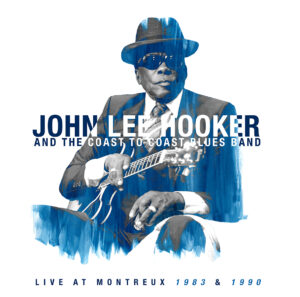 Live at Montreux 1983 & 1990
Live at Montreux 1983 & 1990
Eagle Records – 0895534
A key part of John Lee Hooker’s enduring appeal is the cloak of mystery that always surrounded him. Heck, even his birth date and place are subject to debate. What is not up for discussion is that he was the king of boogie-woogie, and this double LP, John Lee Hooker and the Coast to Coast Blues Band Live at Montreux 1983 & 1990, serves as unadulterated proof.
“The Hook” practically lived in the studio during his amazing 60-year run, so there’s a reservoir of his recorded history as deep as the Mississippi River to keep fans and historians occupied for the foreseeable future. While his catalog contains several live albums, including 1964’s excellent John Lee Hooker at Newport, the low-key, yet vital Live at Café Au Go Go (1967), and the rockin’ Hooker ’n’ Heat: Recorded Live at the Fox Venice Theater (1981), this immaculately recorded and mastered offering released by the German label Eagle Records captures Hooker in a pair of sterling later-career performances.
The concerts were recorded seven years apart at the Montreux Jazz Festival with two different lineups of the rock steady Coast to Coast Blues Band lending a precise, propulsive backbone to the proceedings. The one constant player in both bands is guitarist Michael Osborn, who backed Hooker for over 13 years.
By the time Hooker hit the stage in Montreux in July 1983, in the wake of a fallow late ’70s swoon, he was riding the crest of a comeback wave, fueled by the 1980s blues renaissance and his appearance in The Blues Brothers film that introduced him to a new, younger audience. The sharp, crisp groove laid down by bassist Steve Ehrmann and drummer Tim Richard on It Serves Me Right to Suffer opens the night with a fire that smolders throughout.
The show is filled with highlights, including the one-note perfection of Boogie Chillen’, a jam with guests Sugar Blue on harp and Luther Allison on guitar, the slow burn of Worried Life Blues that drips with soul, and the funk on demand of Crawlin’ King Snake.
Hooker and band still bring the heat and add horns to the mix in the 1990 concert, which features numerous gems, led by the excellent beer joint duet between Hooker and singer Vala Culp on Crawlin’ King Snake that even eclipses the 1983 version; the sinister, hip-shaking groove of I’m in the Mood; and the B3 master class conducted by Melvyn “Deacon” Jones on It Serves Me Right to Suffer.
Guest guitarists Carlos Santana and Roy Rogers and drummer Chester Thompson bring a simmering urgency to The Healer, while the horns do the heavy lifting on a smokin’ Boogie Chillen’ that brings the curtain down on an album with no throw-away moments that leaves you hoping for an encore.
—Rod Evans
KID RAMOS & BOB CORRITORE
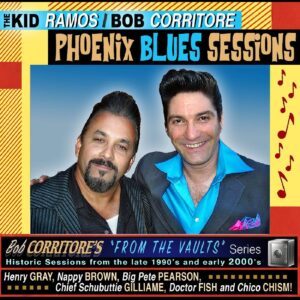 Phoenix Blues Sessions
Phoenix Blues Sessions
VizzTone/SWMAF – SWMAF 16
If there is a theme to be found in the story of Phoenix Blues Sessions, it is celebration in the face of adversity. A collection of tunes waxed around the turn of the 21st century by guitarist Kid Ramos, harmonicist Bob Corritore, and a murderer’s row of dynamic vocalists, the album was originally released in 2012 to raise support for Ramos as he battled a rare form of cancer. The axman thankfully made it through, and now, at a time when we could all use a little relief from our daily trials, Ramos and Corritore have rereleased the disc, complete with three previously unissued tracks.
Ramos’ tone is gritty, his rhythmic drive effortlessly authoritative. His stunning range shines forth on two of the new tracks, stinging like whipcracks on the bustling Come on In and whispering plaintive laments under the late drummer Chico Chism’s honeyed vocals on Mother-in-Law Blues. Corritore’s harp, with its thick, cutting sound, is the album’s heartbeat. The playful Baby Don’t You Tear My Clothes finds him in a squonky back-and-forth with vocalist Nappy Brown (who, like Chism, is sadly no longer with us), and on the third new cut, the midnight drag 24 Hours, Corritore’s resonant drone cushions the heartsick blow of Dr. Fish’s yearning paean to love gone astray.
Three additional singers offer their own fresh accents to the festivities. Chief Schabuttie Gilliame’s throaty growl powers a pair of self-penned tracks, the pummeling single-chord No More Doggin’ and the appropriately slithery album closer, Snakes Crawls at Night. Big Pete Pearson brings swinging good times to a previously unissued take of Natural Ball, a vibrant showcase for Corritore and pianist Tom Mahon.
And as much as anything, Phoenix Blues Sessions serves as an exultant tribute to vocalist/pianist Henry Gray, who passed away back in February at the tender age of 95. Gray appears on five of the songs here, and from track one, the hard-charging Aw Shucks Baby, his pounding attack on the keys is unmistakable. His standout vocal feature is They Raided the Joint, Ramos burbling jauntily beneath a swaggering account of a busted-up party with Gray “standin’ in the corner / knocked out as I could be.” Fortunately, nothing can stop the party on Phoenix Blues Sessions. The joy and energy found here is a welcome tonic for hard times indeed.
—Matt R. Lohr
BIG HARP GEORGE
 Living in the City
Living in the City
Blues Mountain – BMR 04
It may surprise some readers not familiar with his background that the man behind Big Harp George, George Bisharat, is a Harvard-educated professor of law at UC Hastings, where he joined the faculty in 1991 after serving as a public defender in San Francisco. An unorthodox bio for a blues musician, for sure, but Bisharat has been playing for decades, honing his skills and cultivating a stage persona that turned heads on his 2014 debut at the age of 59, Chromaticism. Bisharat has followed up with a new record every two years since that release.
Living in the City finds Bisharat back in the company of guitarist/bassist Kid Andersen at his Bay Area Greaseland Studios, along with respected drummer June Core, four brass players, and the late Little Charlie Baty, who is featured on six tracks. An eclectic array of instrumentalists rounds out the supporting cast, performing everything from a qanun to the Paraguayan harp.
Bisharat may have described his style as “derivative” at one point in his career (a common occupational hazard for many blues harmonica players), but that couldn’t be further from the truth now. Every one of the baker’s dozen tracks is an original number, with many showcasing Bisharat’s considerable skill on the big chromatic harmonica—especially the instrumental Bayside Bounce and the jazzy title track.
What’s particularly notable here is Bisharat’s willingness to take on pressing social issues of our time, from immigration (Enrique) and opioid addiction (Pusher in a White Coat) to rising health care costs (Copayment) and the Gaza Strip (Meet Me at the Fence). Some of these tracks stray outside the blues genre, true, but the album’s eclectic spirit is also its strength, pushing the boundaries while still remaining grounded in the music we all love.
—Roger Gatchet


